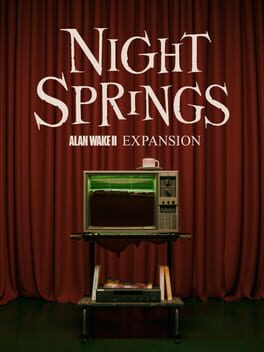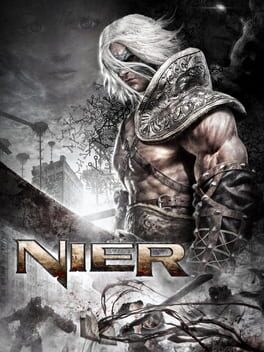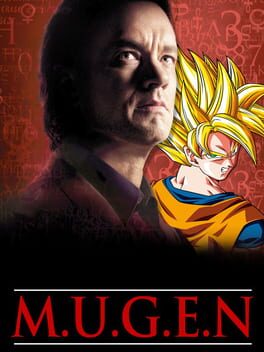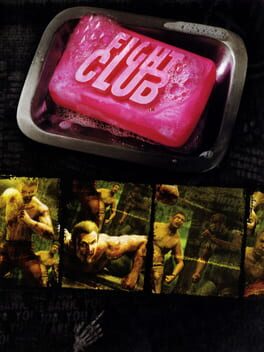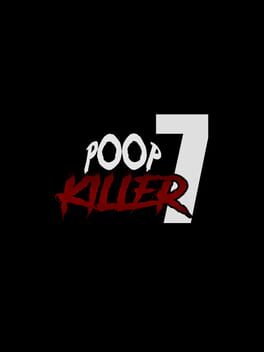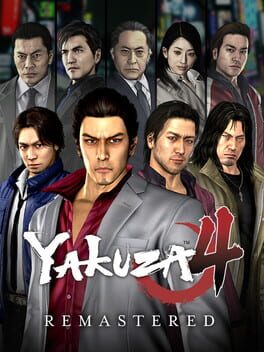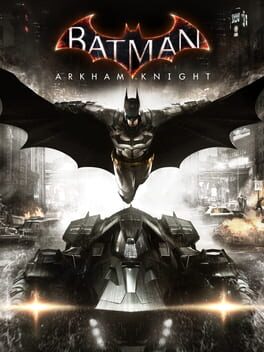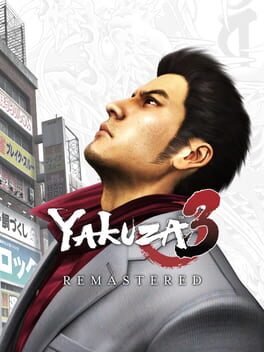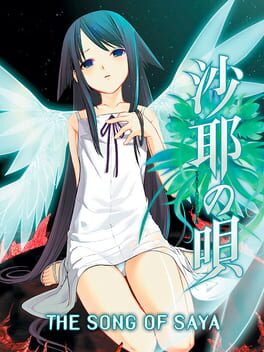cmxxviii
28 Reviews liked by cmxxviii
Metal Gear Solid
1998
I'd like to start this review by quoting Kiryu himself in Yakuza 5
"I'm not like you. To you, being Yakuza is a way to die. To me... it's a way to live. We walk the same path, but you're barreling towards death, while I fight for life."
While this might be a Kiryu game in all effectiveness, to me this is a game dedicated to the series itself, and to the moment of glimmer the characters see in a way of life trudging through filth. The way of life that the Yakuza follow.
This game lets us finally see the true impact of what the dissolution of the Yakuza brought about. And in a meta-narrative sense, the end of Kiryu's age or the "Yakuza" series with the rebranding into Like a Dragon.
When you reflect on the series' origin, how Kiryu ended up in this way of life by idolizing a man who held guilt towards his actions. The diamonds of his effort resulted in him having ended the cycle by inspiring his children to be people who walk the path of light. He didn't just end the age of Yakuza in this game, he truly brought about something good from Kazama's actions that kicked off his life no matter how morally grey he was.
To quote Kiryu again,
"I can hide my past all I want. But no matter how much I hate it...I'll always be Yakuza."
"I can erase my name all I want but I can't deny who I am."
He unbashedly acknowledges how he is Yakuza through and through in the series, and while his ideal might've been one of hope and strength the path of violence that he has taken has had its consequences in turn bringing about a cycle of violence that threatened all that was precious to him. And inspiring others to follow it in the wake he leaves.
This is where I'll make a tangent to talk about Shishido, I think he is the best thing to come out of this game. On paper, he might be just a man who tried to prevent the end of the Yakuza because that's the only way of life he knew. But to me, he's more than a character in the narrative, he's a figure who represents every single person in this way of life across the series. He is the result of what Kiryu's life influenced in a twisted way.
Confronting Shishido at the end must've felt like facing a crystallization of his own life to Kiryu. When you see him size himself up with the backdrop of the Omi alliance building, that's when I knew he wasn't just representing himself but the very blood, sweat and tears that went in throughout the series that led to this.
While Yakuza is a series that talks about humanity in criminals, it also deconstructs itself by commenting on the modern age of Yakuza where there are no ideals or honour in the men who identify as such. To them, it's just another way to succeed and indulge in the pleasures of life.
Where Someya is a man who was able to walk the path of the lost ideals despite losing himself, Shishido is someone who inherited the one thing about the Yakuza that's universal across all of them. Tenacity.
He is a cry for survival the Yakuza shout out in their dying blaze. And one that calls out to Kiryu as the man who stands atop it all. An effigy of the ideals that breathe no more.
If Yakuza 6 was about his parenthood being tested and the sacrifices he would make to uphold it, Gaiden is about him coming to confront the past he couldn't in 6. The demons he's built and festered, the legacy that nearly consumed him whole. It's impressive how small-scale and contained the narrative is, focusing solely on the end of the Yakuza. We direly needed to see Kiryu's perspective on this as it isn't just a conclusion to the era but also the end of his life as Kazuma Kiryu.
That's all I have to say about the narrative and how previous entries play into it but to make a few footnotes, it's a little disappointing the first 4 chapters don't do a lot for the story but it's fine considering they are primarily here to serve the finale. The gameplay is good it felt unpolished which isn't surprising with how short of a development cycle it had. What I did of the side content was standard fare for the series, the coliseum is good. The music is great and this is the best-looking game in the series undoubtedly.
To conclude the review with the quote I started it off on if a man whose identity and actions are so tied to a path he finds to be rubbish can start over, I can't help but be inspired.
I'm gonna repeat myself a little here but it is incredibly rewarding emotionally to see that Kiryu's life through the mistakes, partings and suffering he bears, leads to something meaningful. Even if his past being bloody is something he regrets, his purpose as Yakuza resulted in lives brightened as the ultimatum.
To be able to destroy the throne he sat on and subsequently wipe off the face of the Yakuza, I can't think of a more perfect ending for The man who erased his name.
"I'm not like you. To you, being Yakuza is a way to die. To me... it's a way to live. We walk the same path, but you're barreling towards death, while I fight for life."
While this might be a Kiryu game in all effectiveness, to me this is a game dedicated to the series itself, and to the moment of glimmer the characters see in a way of life trudging through filth. The way of life that the Yakuza follow.
This game lets us finally see the true impact of what the dissolution of the Yakuza brought about. And in a meta-narrative sense, the end of Kiryu's age or the "Yakuza" series with the rebranding into Like a Dragon.
When you reflect on the series' origin, how Kiryu ended up in this way of life by idolizing a man who held guilt towards his actions. The diamonds of his effort resulted in him having ended the cycle by inspiring his children to be people who walk the path of light. He didn't just end the age of Yakuza in this game, he truly brought about something good from Kazama's actions that kicked off his life no matter how morally grey he was.
To quote Kiryu again,
"I can hide my past all I want. But no matter how much I hate it...I'll always be Yakuza."
"I can erase my name all I want but I can't deny who I am."
He unbashedly acknowledges how he is Yakuza through and through in the series, and while his ideal might've been one of hope and strength the path of violence that he has taken has had its consequences in turn bringing about a cycle of violence that threatened all that was precious to him. And inspiring others to follow it in the wake he leaves.
This is where I'll make a tangent to talk about Shishido, I think he is the best thing to come out of this game. On paper, he might be just a man who tried to prevent the end of the Yakuza because that's the only way of life he knew. But to me, he's more than a character in the narrative, he's a figure who represents every single person in this way of life across the series. He is the result of what Kiryu's life influenced in a twisted way.
Confronting Shishido at the end must've felt like facing a crystallization of his own life to Kiryu. When you see him size himself up with the backdrop of the Omi alliance building, that's when I knew he wasn't just representing himself but the very blood, sweat and tears that went in throughout the series that led to this.
While Yakuza is a series that talks about humanity in criminals, it also deconstructs itself by commenting on the modern age of Yakuza where there are no ideals or honour in the men who identify as such. To them, it's just another way to succeed and indulge in the pleasures of life.
Where Someya is a man who was able to walk the path of the lost ideals despite losing himself, Shishido is someone who inherited the one thing about the Yakuza that's universal across all of them. Tenacity.
He is a cry for survival the Yakuza shout out in their dying blaze. And one that calls out to Kiryu as the man who stands atop it all. An effigy of the ideals that breathe no more.
If Yakuza 6 was about his parenthood being tested and the sacrifices he would make to uphold it, Gaiden is about him coming to confront the past he couldn't in 6. The demons he's built and festered, the legacy that nearly consumed him whole. It's impressive how small-scale and contained the narrative is, focusing solely on the end of the Yakuza. We direly needed to see Kiryu's perspective on this as it isn't just a conclusion to the era but also the end of his life as Kazuma Kiryu.
That's all I have to say about the narrative and how previous entries play into it but to make a few footnotes, it's a little disappointing the first 4 chapters don't do a lot for the story but it's fine considering they are primarily here to serve the finale. The gameplay is good it felt unpolished which isn't surprising with how short of a development cycle it had. What I did of the side content was standard fare for the series, the coliseum is good. The music is great and this is the best-looking game in the series undoubtedly.
To conclude the review with the quote I started it off on if a man whose identity and actions are so tied to a path he finds to be rubbish can start over, I can't help but be inspired.
I'm gonna repeat myself a little here but it is incredibly rewarding emotionally to see that Kiryu's life through the mistakes, partings and suffering he bears, leads to something meaningful. Even if his past being bloody is something he regrets, his purpose as Yakuza resulted in lives brightened as the ultimatum.
To be able to destroy the throne he sat on and subsequently wipe off the face of the Yakuza, I can't think of a more perfect ending for The man who erased his name.
This review contains spoilers
cool ideas and the rose episode was very fun but this ended up feeling a little undercooked. i guess a lot of my problems with it can be written off due to the presentation being a TV show where things must happen on a set path and there is not much attention paid to being a "video game", with the abundance of ammo ensuring you never have to worry about the survival in this horror game and the puzzles being very light. despite that i still don't really understand the goal with this one as it felt like each episode (bar the first) could have used another 30-45 minutes onwards each from their ending. this especially goes for episode three which fizzles out before anything can come to fruition. since there is barely any game this time around other than occasional combat even just a few more puzzles or something would have been nice. i get that it is a lot of setup for the lake house or whatever but on it's own it's not very satisfying and the questions the DLC poses don't fill me with much enthusiasm.
i hope i'm not being lame but i really hope the third game or even the second DLC for that matter isn't too much about this multiverse stuff as i can't really say it's that interesting to delve into, already becoming a little contrived and distracting from the main story. i like the ideas about door and hope the next DLC delves into that more but can't say i care much for the remedy crossover multiverse jargon overall. needed more of scratch posed up as paddy mcaloon on steve mcqueen for this to be truly fire.
i hope i'm not being lame but i really hope the third game or even the second DLC for that matter isn't too much about this multiverse stuff as i can't really say it's that interesting to delve into, already becoming a little contrived and distracting from the main story. i like the ideas about door and hope the next DLC delves into that more but can't say i care much for the remedy crossover multiverse jargon overall. needed more of scratch posed up as paddy mcaloon on steve mcqueen for this to be truly fire.
Alan Wake II
2023
NieR
2010
This review contains spoilers
IM DELETING YOU, FATHER! ██]]]]]]]]]]]]]]]]]]]]]]]]]]]]]]]]]] 10% complete..... ████████]]]]]]]]]]]]]]]]]]]]] 35% complete.... ████████████]]]]]]]]]]]] 60% complete.... █████████████████] 99% complete..... 🚫ERROR!🚫 💯True💯 Replicants of The Village are irreplaceable ☪I could never delete you FATHER!💖 Send this to ten other 👪Gestalts👪 who would give their lives for ﷲShadowlordﷲ Or never get called ☁️Father☁️ again If you get 0 Back: Junk Heap grinding for you 🚫†🗑🚫 3 back: you're off the sidequests list☁️💦 5 back: you have pleased Popola greatly☪💦 10+ back: FACADE!ﷲ!💕👅
██████████████████ 100% complete...
I've lost 100% side quest completion save file i'm killing myself
██████████████████ 100% complete...
I've lost 100% side quest completion save file i'm killing myself
Alan Wake II
2023
Alan Wake is all about stories and creativity, but it struggles with language. Both games center around reality-warping meta-narratives which shed light on the author’s disorganized psyche, but an abstract conflict like this is difficult to portray either visually or interactively. The visual motif it uses to do so is probably the most simplistic and traditional one of all: darkness and light. Light of goodness, shadow of despair, it’s been in use for literally thousands of years, and for a nontraditional story like this, it at least works as a familiar foundation to ground understanding. The interactive language meanwhile is equally simple, but in a way that feels less purposeful.
A game about creativity, self-doubt, and the nature of reality is, for some reason, presented by way of a third-person shooter, with a dynamic difficulty system generous enough to preclude any sense of survival horror. These shooter mechanics exist mostly as a way to create a sense of pushback, rather than actually representing the conflict that drives the narrative. However, I do have to give it some credit, as it actually does come close to doing so with the design of its enemies. Most of them are faceless shades, which stand around in the midst of other identical, but harmless, shadowy figures. At the start of the game, you’ll find yourself waving your flashlight from spot to spot, hoping to find foes amongst the fakers, but that’s as far as the mechanics ever push you. If you use a healing item, you can be certain that within two item boxes, you’ll find a replacement, and if you used all your ammo, you’ll instantly find more. The interactive language it’s using is, again, incredibly simple, just meant to slow you down, not to have much actual relevance to the story.
But of course, that’s the reason why we’re here in the first place; it’s hard to portray a struggle against the self in a way that can be experienced from without. It’s what brings us back to the darkness-and-light motif, an idea general enough for an audience to reflexively understand, but this generality creates a feeling of hollowness in its message. With this theme being the core of its visual and narrative identity, the only language it had to convey the fulfillment of a character arc was in the shedding or embracing of inner darkness, which flattens the nuance of a mature plot into a finale that feels like a kid’s cartoon, telling you to just believe in yourself.
That’s what I mean when I say the game struggles with its language; its genuinely interesting plot and narrative themes are let down by the methods chosen to communicate them. This is the same way I felt while playing Alan Wake 1 and Control as well, like Remedy’s boundary-breaking impulses are forcibly being restrained by the need to speak in marketable terms. That’s, ironically, why I’ll just keep buying these games. I want them to know that they’ve proven themselves, that they’ve reached their audience. I’m here, I’m listening. I want them to confidently say what they have in mind, to finally speak without reservation.
A game about creativity, self-doubt, and the nature of reality is, for some reason, presented by way of a third-person shooter, with a dynamic difficulty system generous enough to preclude any sense of survival horror. These shooter mechanics exist mostly as a way to create a sense of pushback, rather than actually representing the conflict that drives the narrative. However, I do have to give it some credit, as it actually does come close to doing so with the design of its enemies. Most of them are faceless shades, which stand around in the midst of other identical, but harmless, shadowy figures. At the start of the game, you’ll find yourself waving your flashlight from spot to spot, hoping to find foes amongst the fakers, but that’s as far as the mechanics ever push you. If you use a healing item, you can be certain that within two item boxes, you’ll find a replacement, and if you used all your ammo, you’ll instantly find more. The interactive language it’s using is, again, incredibly simple, just meant to slow you down, not to have much actual relevance to the story.
But of course, that’s the reason why we’re here in the first place; it’s hard to portray a struggle against the self in a way that can be experienced from without. It’s what brings us back to the darkness-and-light motif, an idea general enough for an audience to reflexively understand, but this generality creates a feeling of hollowness in its message. With this theme being the core of its visual and narrative identity, the only language it had to convey the fulfillment of a character arc was in the shedding or embracing of inner darkness, which flattens the nuance of a mature plot into a finale that feels like a kid’s cartoon, telling you to just believe in yourself.
That’s what I mean when I say the game struggles with its language; its genuinely interesting plot and narrative themes are let down by the methods chosen to communicate them. This is the same way I felt while playing Alan Wake 1 and Control as well, like Remedy’s boundary-breaking impulses are forcibly being restrained by the need to speak in marketable terms. That’s, ironically, why I’ll just keep buying these games. I want them to know that they’ve proven themselves, that they’ve reached their audience. I’m here, I’m listening. I want them to confidently say what they have in mind, to finally speak without reservation.


